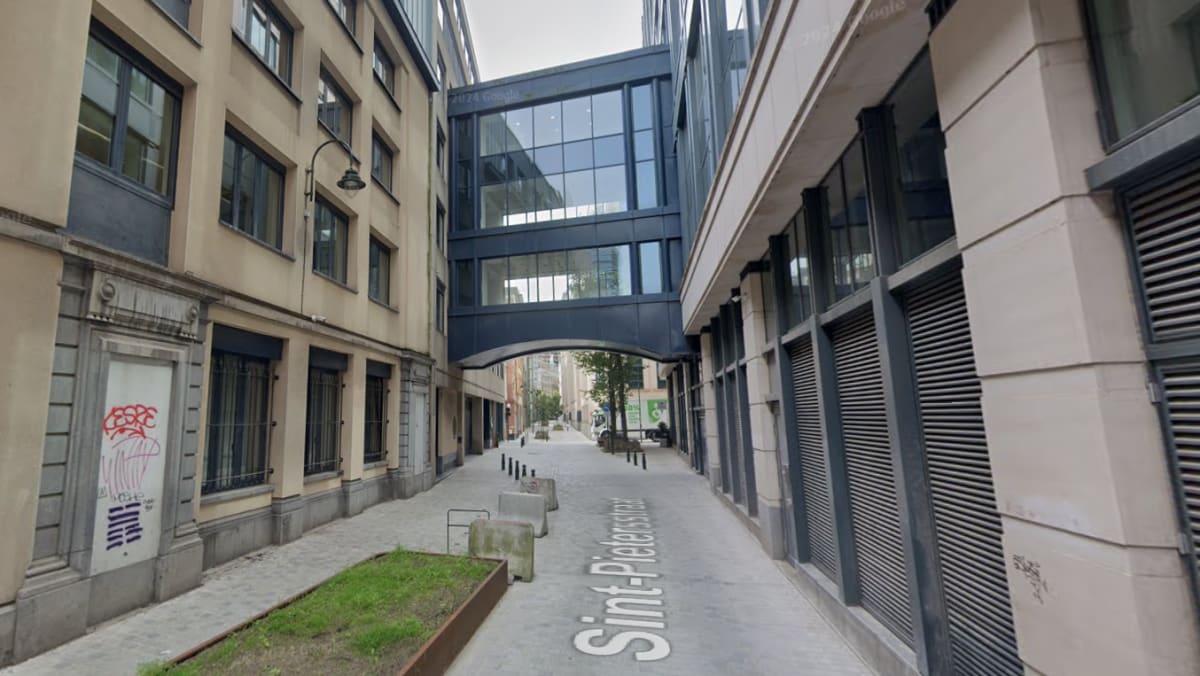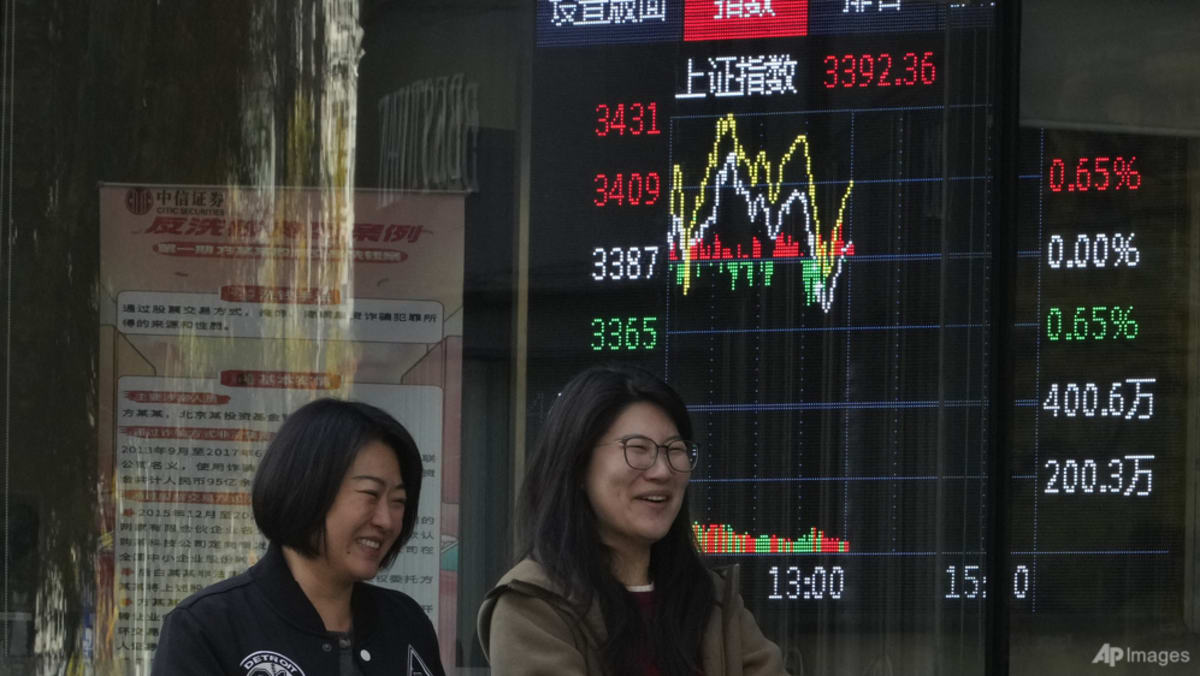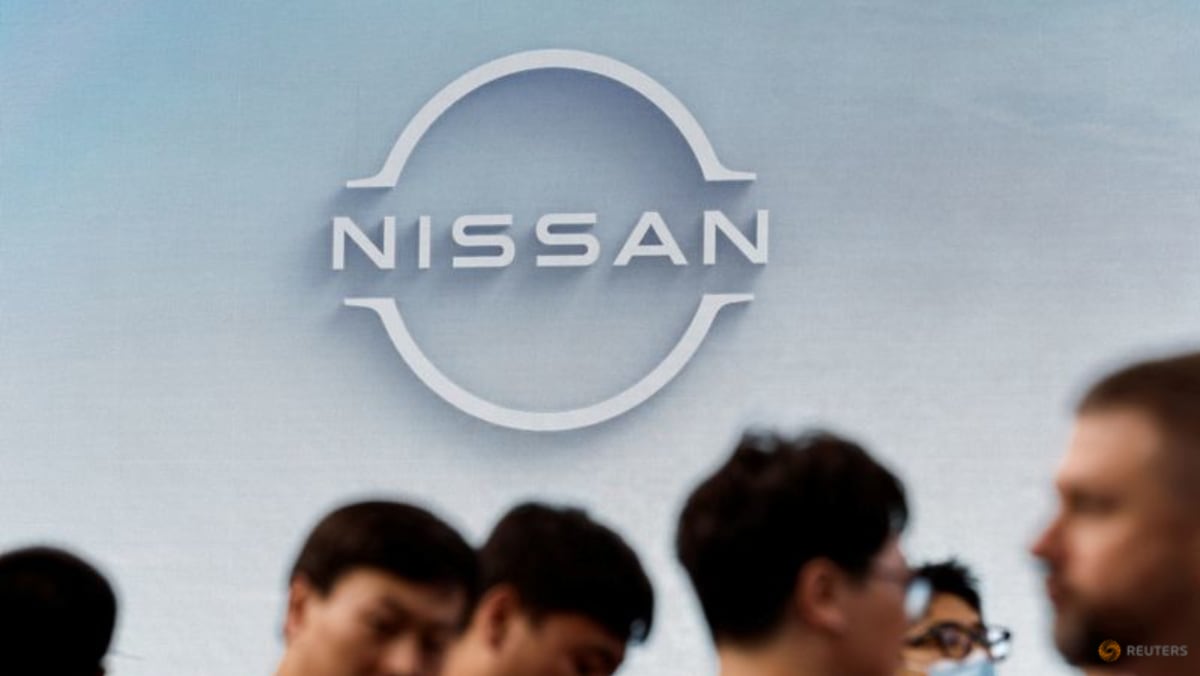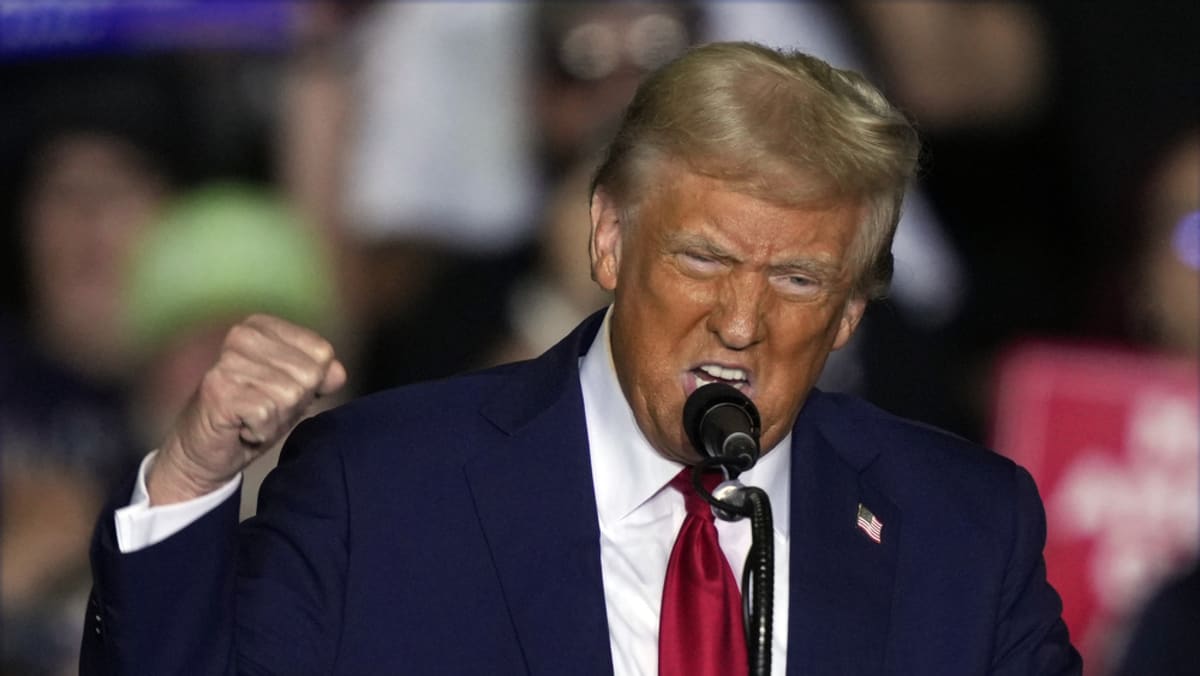On Wall Street, the S&P 500 and Nasdaq rallied again to hit fresh records, helped by strong performances by tech titans Apple, Google parent Alphabet and Facebook’s Meta.
Asia took up the baton in early trade, with Tokyo, Hong Kong, Shanghai, Sydney, Seoul, Singapore, Taipei, Wellington and Jakarta all higher heading into the weekend.
Mainland Chinese blue chips were up 0.5 per cent as of 0155 GMT, after a 3 per cent surge on Thursday. Hong Kong’s Hang Seng gained 1 per cent.
Japan’s Nikkei added 0.25 per cent, up 3.7 per cent for the week.
Australia’s stock benchmark climbed 1 per cent, and Taiwan’s benchmark gained 0.7 per cent.
On currency markets, the dollar edged up slightly against the yen after dropping in reaction to the Fed cut.
Investors are eyeing the outcome of the week-long gathering in Beijing of officials working to hash out a stimulus to kickstart China’s economy.
Economists expect lawmakers to approve hundreds of billions of dollars in extra budget, with a lot of focus on helping indebted local governments as well as cash for banks, aimed at writing off non-performing loans over the past four years.
The meeting comes amid uncertainty about the outlook for China after the election of Trump, who warned during his campaign that he would hit imports from the country with huge tariffs of up to 60 per cent.
“On balance, it is likely that Trump’s electoral victory presents additional downward pressure to China’s growth in the next few years (depending on various policy responses in both the US and China),” said National Australia Bank’s Gerard Burg.
However, Michael Hewson at MCH Market Insights, added: “There is a sense of déjà vu with respect to Donald Trump winning the US presidential election, both politically as well as from a market point of view.
“On the one hand we have some serious hand-wringing going on as some parts of the political spectrum go into a collective pearl-clutching meltdown at the prospect of four years of unfettered Trumpism.
“As far as the markets are concerned the response has been more tempered to the one we observed eight years ago, when the volatility was much more pronounced.”














